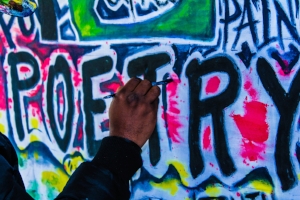What I mean is this: they expect each and every discrete project they take to fail because the reality is, most things never get completed or published. They are acknowledging reality, and have zero emotional response when a fiction plot gloriously fizzles to nothing, a poem concept just doesn’t work out, or their personal essay fails to ever get published.
Yet they are long-term optimists because they know if they work on enough writing projects, several of them will succeed, making up for all the ones that failed. And yes, that is also reality.
The eternal optimist who thinks everything they write will “work out” is soon ground down by reality. Their beliefs don’t match up with the results, they start to question themselves, and constant disappointment hinders their ability to shake it off and move onto the next project. They become snakebit, and eventually bitter – which is never a positive trait for a creative.
The constant pessimist never takes any action on their writing endeavors because they automatically expect everything they do to fail. And because they never really act, they do fail. They stay loitering on the sidelines moping, never actually getting in the game.
In writing, mindset is very important. But it must be a reality-based mindset, with hard-nosed expectations, not pie in the sky fantasies or pouty tantrums. The more you do, the more you fail, yet paradoxically the more you succeed.
The pessimistic optimist is armored against constant failure and rejection, and it bothers them not. But they also expect success to occasionally interrupt failure, which is why they write and compete in the first place. Become the pessimistic optimist writer, and you will evolve into a winner in a literary world full of losers who love losing.



















